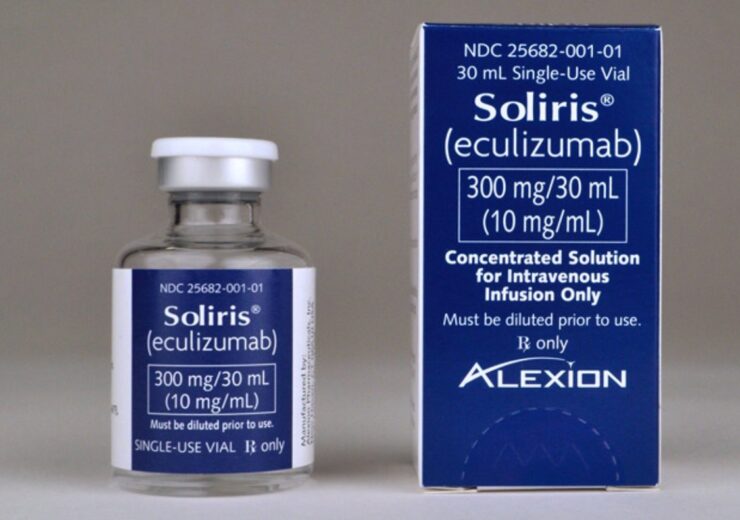The EC approval expands the Soliris initial indication, to treat certain adults with refractory generalised myasthenia gravis (gMG) to include children and adolescents, aged six to 17 years, who are anti-acetylcholine receptor (AChR) antibody-positive (Ab+)

Soliris is a C5 complement inhibitor. (Credit Naingwaiwin/Wikipedia)
Alexion, AstraZeneca’s unit focused on rare diseases, has received the European Commission (EC) approval for the expanded use of Soliris (eculizumab) in the European Union (EU).
Soliris is a recombinant humanised monoclonal antibody that works by inhibiting the C5 protein in the terminal complement cascade, a part of the body’s immune system.
In 2017, Soliris was initially approved by the EU, to treat certain adults with refractory generalised myasthenia gravis (gMG). It is also approved in the US, China and Japan.
The current EC approval expands its indication to include gMG in children and adolescents, aged six to 17 years, who are anti-acetylcholine receptor (AChR) antibody-positive (Ab+).
It follows the positive recommendation of the Committee for Medicinal Products for Human Use (CHMP), based on results from the Phase 3 trial in children with refractory gMG.
Soliris is the first and only targeted therapy approved for the treatment of paediatric patients with the disease in the EU, said AstraZeneca.
Alexion CEO Marc Dunoyer said: “This approval of our first-in-class C5 inhibitor Soliris for paediatric patients with refractory gMG in the EU exemplifies our efforts to deliver transformative medicines that help address unmet medical needs for rare disease communities.
“Soliris offers hope for improved outcomes for children and adolescents impacted by gMG and we are committed to increasing access for these families as quickly as possible.”
In the Phase 3 clinical trial, Soliris showed clinical benefit in paediatric patients with refractory gMG who previously failed immunosuppressive treatment, with unresolved disease symptoms.
The drug showed significant improvement in the primary endpoint of change from baseline in Quantitative Myasthenia Gravis (QMG) total score at week 26, a physician-reported scale assessing disease severity and function.
Its efficacy and safety in paediatric patients, aged six years and above, are in line with the established profile of Soliris in clinical trials involving adults with refractory gMG.
Phase 3 trial primary investigator John F Brandsema said: “This approval represents a significant advance in care for paediatric patients with refractory gMG, who previously had no targeted treatment options to help manage their condition.
“Soliris showed clinical benefit and sustained improvements in disease severity through 26 weeks in a Phase 3 trial, offering the potential to improve quality of life and redefine disease management for children and adolescents living with this rare neurological disease.”
In a separate development, AstraZeneca has unveiled the results from the primary analysis of its ongoing Phase 2 DESTINY-PanTumor02 study of Enhertu (trastuzumab deruxtecan).
Enhertu showed clinically meaningful progression-free survival (PFS) and overall survival (OS) in previously treated patients across HER2-expressing advanced solid tumours, two secondary endpoints.
Enhertu is a specifically engineered HER2-directed antibody-drug conjugate (ADC), developed and commercialised by AstraZeneca in partnership with Daiichi Sankyo.
